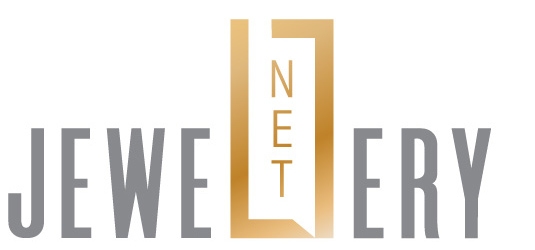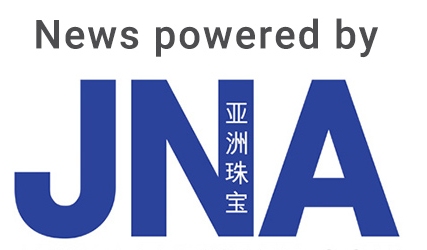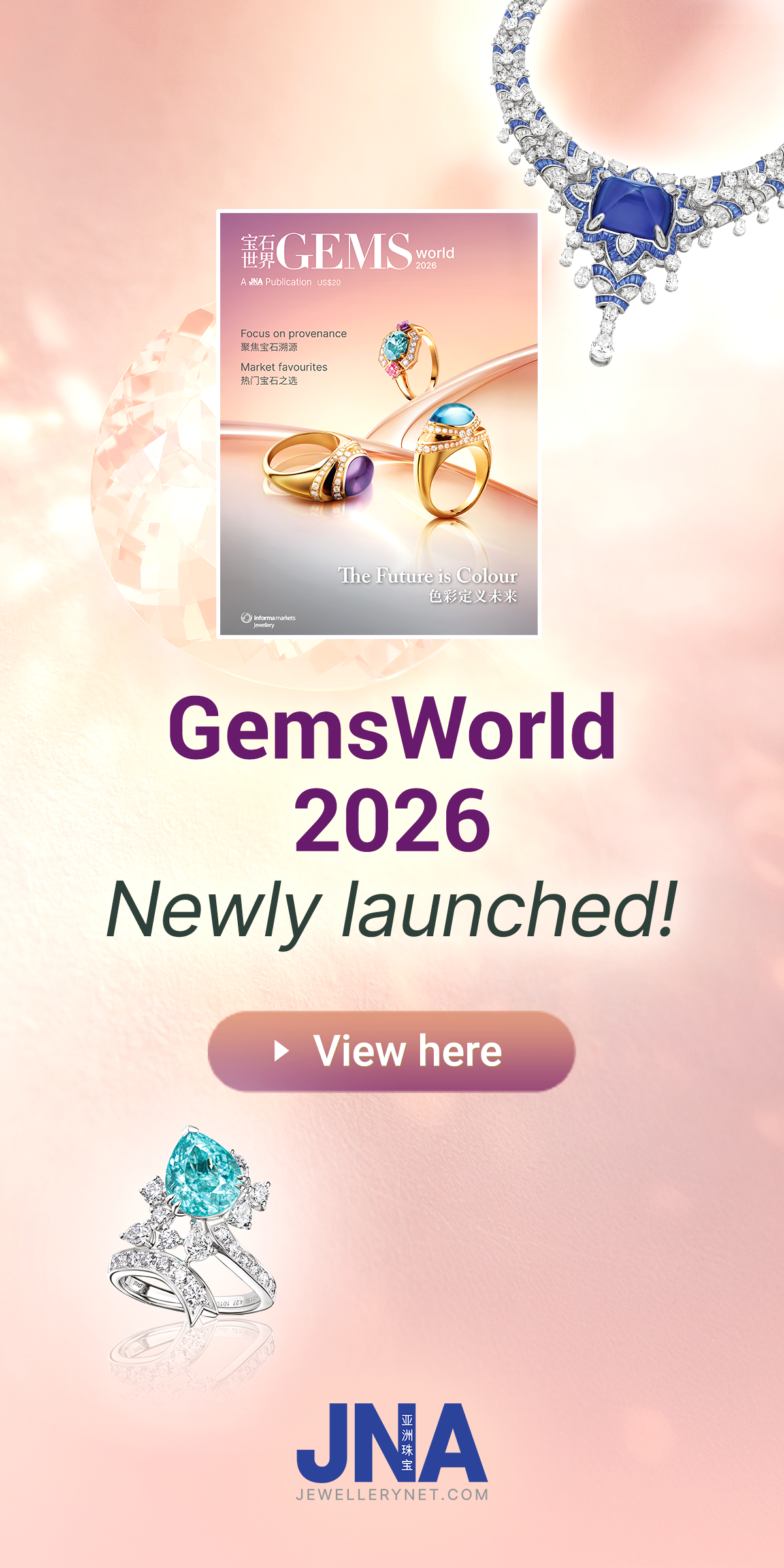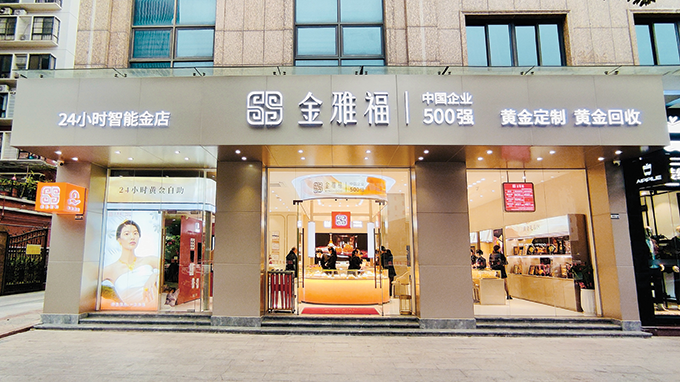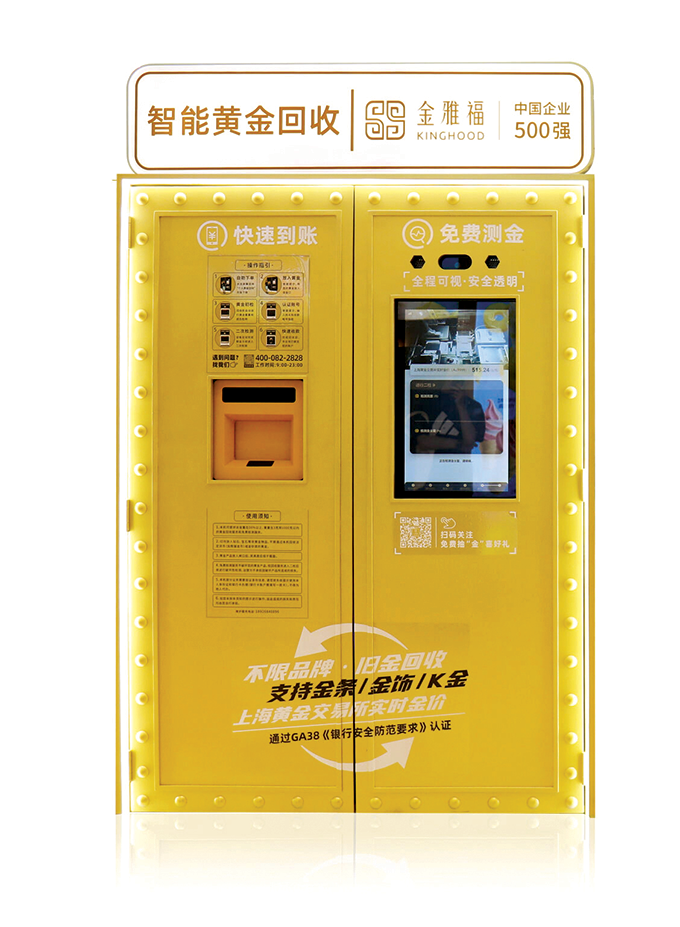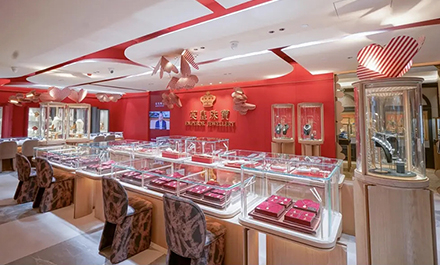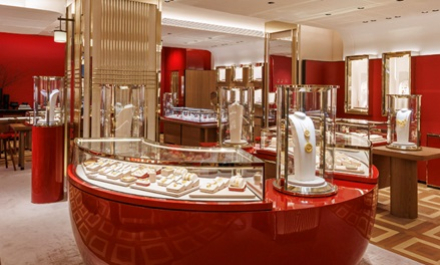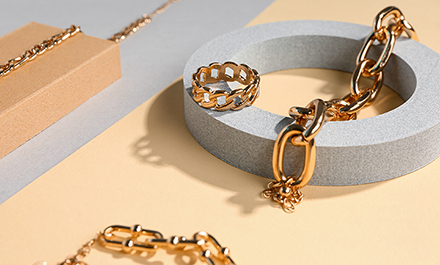Chinese gold jeweller Shenzhen Kinghood Group Co Ltd is implementing innovative retail strategies to better resonate with younger buyers while taking advantage of untapped business opportunities in the gold jewellery market.
This article first appeared in the JNA May/June 2024 issue.
Gold jewellery is witnessing its heyday in China as a trusted store of wealth, with retail sales and prices steadily increasing. According to data from the China Gold Association, local gold consumption reached 1,089.69 tonnes in 2023, representing a year-on-year increase of 8.78 per cent. Gold and silver jewellery likewise emerged as the fastest-growing categories among retail merchandise segments last year.
China was also the main driver of gold jewellery demand in 2023, registering a 10 per cent uptick to 630.2 tonnes, according to the World Gold Council. As of April 4, 2024, gold prices were at US$2,293.50 per ounce, up from about US$2,009.60/oz a year ago.
High gold prices seemingly continue to push robust consumption of gold in China. A report from China’s Kinghood Gold Research Institute estimated that gold sales would reach trillions of RMB and identified five key segments that offer significant opportunities for growth: Gold trading, gold recycling, customisation and gifting, downstream consumption market and younger buyers.
To further capitalise on these, Chinese gold jeweller Shenzhen Kinghood Group Co Ltd has implemented a new retail strategy for gold jewellery since 2023 that focuses on “digitalisation, intelligence and innovation of experience” to meet consumer demand for gold jewellery consumption, recycling and customisation.
Innovators
Founded in 2006, Shenzhen-based Kinghood is an integrated industrial service provider encompassing the entire gold jewellery value chain. Its businesses include cultural product design and development, manufacturing, product customisation, testing, smart retail, gold recycling, gold refining, warehousing and logistics.
According to Kinghood Chairman Vincent Wong, the company uses a strategic “culture + technology” approach to drive industry development and foster innovation in the gold jewellery sector. With an annual revenue of over RMB50 billion (around US$7.34 billion), the group has been ranked among the Top 500 Chinese Enterprises for five consecutive years.
In recent years, Kinghood has been actively expanding its B2C business through inventive retail strategies. One of its notable initiatives is the introduction of so-called smart gold stores.
Unlike a traditional gold jewellery retail shop that solely focuses on selling products, the smart gold store offers customers a one-stop experience, allowing them to sell gold, purchase various kinds of gold jewellery and gifts, and use jewellery customisation services.
Among the store’s highlights is the 24-hour self-service area, which features the "Gold Recycle Smart Terminal" and the "Gold and Jewelry Vending Machine." These devices, which function like an ATM, enable customers to conveniently buy and sell gold.
The Gold Recycle Smart Terminal, a pioneering solution in the industry, harnesses artificial intelligence technology such as big data and machine learning to automate every step of the gold recycling process.
Customers place the jewellery item they intend to recycle in the state-of-the-art machine, which then identifies it and accurately assesses the fineness of the gold and the weight of the metal. After valuation, the machine proceeds to melt the gold for recycling. Payment is deposited immediately in the customers' bank account or transferred to their digital wallets.
On the other hand, customers can use the Gold and Jewelry Vending Machine to buy small-gram products like gold bars and gold beans.
“Smart recycling offers a standardised process and increased privacy for consumers as well as transparency in testing and pricing,” Wong explained. “The new smart retailing approach enables customers to trade gold in a safer, more transparent and secure manner. This approach resonates particularly well with younger consumers. I believe it will be a significant driver of business growth.”
Kinghood has already established smart gold stores in Foshan, Shenzhen, Guangzhou and Meizhou, among other destinations. The Gold Recycle Smart Terminal, meanwhile, has been deployed across 30 cities in China.
The company has also collaborated with several banks to deploy the Gold Recycle Smart Terminal in their branches, expanding its availability.
Gold recycling
Wong pointed out that transaction efficiency was of utmost importance to consumers when it comes to gold recycling.
"They want to immediately cash in on their gold jewellery, whether for consumption or other purposes. Therefore, there is consistent demand for physical gold recycling among consumers," he shared.
Conservative estimates indicate a gold stockpile of approximately 17,000 tonnes in China, added Wong. However, these often consist of outdated styles that consumers may wish to resell or recycle.
Moreover, there is substantial potential in the gold recycling market, owing to tighter environmental regulations and global trade restrictions that often lead to a decline in mined and imported gold. Providing consumers with a convenient and standardised gold recycling channel can revitalise existing gold inventories and fuel gold “re-consumption,” noted Wong.
O2O retail strategy
Kinghood has also built distinct brands — Jin Ya Fu, KINGHOOD and Jewelry Yayu — to cater to different consumer segments, as part of its new retail strategy.
In line with the introduction of the smart gold store, Jin Ya Fu targets the mass market, providing 24-hour gold retailing and recycling services while KINGHOOD aims to attract younger consumers with trendy gold jewellery to meet their desire for self-expression. Jewelry Yayu, meanwhile, caters to the company's exclusive clients.
Kinghood is likewise leveraging its WeChat super mini-programme and other e-commerce channels to offer a seamless online and offline consumer experience.
This new retail strategy is an important leap for Kinghood as it continues to expand its business from B2B to B2C. In 2023, Kinghood opened branded stores in landmark shopping malls across Tier 1 and Tier 2 cities. The group witnessed a 13.65 per cent increase in consolidated revenue and a 73.7 per cent growth in the gold jewellery segment.
Wong remarked, “In 2024, Kinghood will concentrate on accelerating the nationwide business development of our retail brands. We will continue to focus on gold recycling and customisation, and other businesses playing to our advantage. We will also focus on brand differentiation, accurate marketing and the development of a customer-centric approach to build a competitive service system within the industry.”
The Gold Recycle Smart Terminal, developed by Shenzhen Shangshan Intelligence Co Ltd under Kinghood, revolutionises the gold recycling experience. It can process various types of gold jewellery weighing 3 grams to 1,000 grams and containing at least 50 per cent gold.
Its main features include:
• Real-time price docking with the Shanghai Gold Exchange, enabling transactions based on up-to-date gold prices with minimal service charge
• An integrated camera to record the gold recycling process, which customers can also watch
• Efficient transaction as the entire gold recycling process only takes about 15 to 20 minutes
• API, which enables customisation for integration with business partners’ existing platforms upon request
